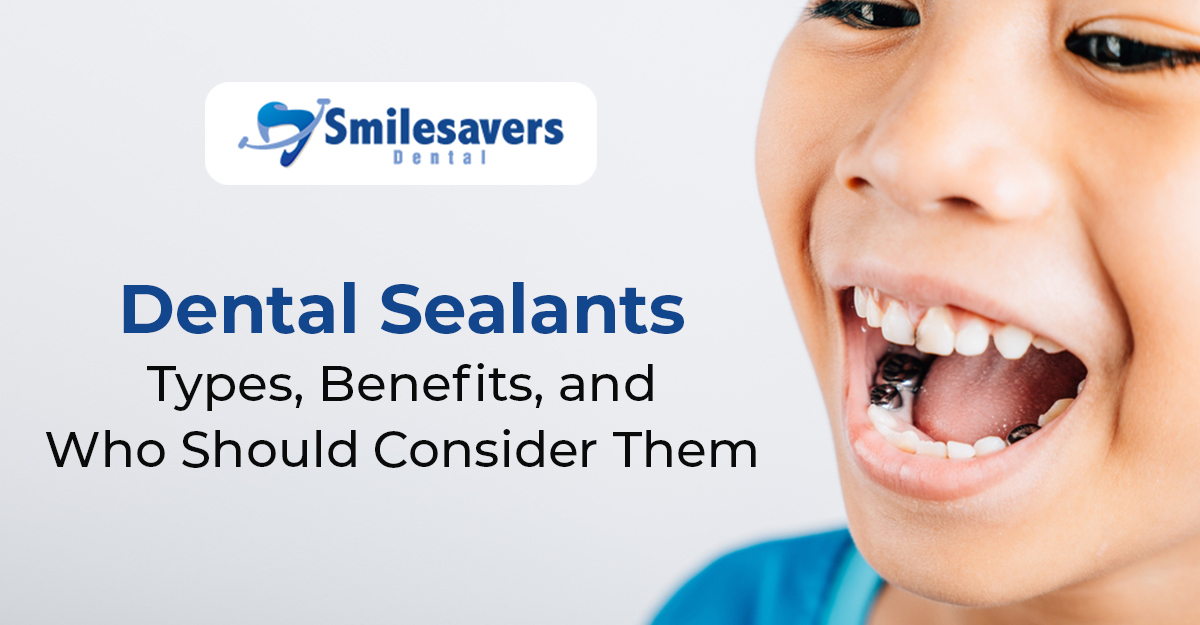
Dental sealants are a simple yet highly effective way to protect teeth from decay, particularly in children and teenagers. Acting as a barrier against plaque and food, these thin coatings are applied to the chewing surfaces of molars, where most cavities occur. If you’re looking to prevent tooth decay for yourself or your child, dental sealants could be an ideal option. Let’s explore the different types of dental sealants, their benefits, and who should consider getting them.
What Are Dental Sealants?
Dental sealants are a thin, plastic coating painted onto the chewing surfaces of the back teeth (molars and premolars). These teeth have deep grooves and pits that are often difficult to clean thoroughly with brushing alone, making them prone to cavities. Sealants form a protective shield over these vulnerable areas, keeping out plaque and bacteria that lead to tooth decay.
Once applied, sealants bond quickly to the tooth surface and can last for several years with proper oral hygiene. While dental sealants are most often recommended for children and teenagers, adults who are prone to cavities or have deep grooves in their molars can benefit as well.
Types of Dental Sealants
There are two primary types of dental sealants:
- Resin-Based Sealants
Resin-based sealants are the most common type used in dental offices. They are made from plastic and bond to the tooth enamel after being applied. These sealants can last between 5-10 years with proper care and regular dental check-ups. Resin-based sealants are transparent or white, blending well with the natural tooth color, making them aesthetically pleasing. - Glass Ionomer Sealants
Glass ionomer sealants are made from a combination of glass and acrylic. These sealants release fluoride over time, which helps strengthen the tooth enamel and further protect against decay. Although glass ionomer sealants may not last as long as resin-based ones, they can be a good option for people who are at higher risk of developing cavities due to poor oral hygiene or existing dental conditions.
Benefits of Dental Sealants
The application of dental sealants provides several key benefits:
- Cavity Prevention
Sealants act as a physical barrier between the tooth surface and harmful bacteria, preventing the formation of cavities, particularly in the back teeth, which are more susceptible to decay. - Easy to Apply
The process of applying dental sealants is quick and painless. It involves cleaning the tooth surface, applying an adhesive layer, and then painting the sealant onto the tooth. The procedure typically takes only a few minutes per tooth. - Long-Lasting Protection
With proper care, dental sealants can last for several years. Routine dental visits ensure that your sealants are intact and continue protecting against cavities. - Cost-Effective
Preventing cavities with dental sealants can save you from more expensive treatments like fillings, crowns, or root canals in the future. The upfront cost of sealants is generally much lower compared to restorative dental work.
Who Should Consider Dental Sealants?
- Children and Teenagers
Children and teenagers are the most common candidates for dental sealants. Sealants are typically applied as soon as the permanent molars come in, usually between ages 6 and 14. Since younger individuals may not always have the best brushing and flossing habits, sealants can provide extra protection against cavities during these critical years. - Adults with Cavity-Prone Teeth
While dental sealants are most commonly associated with children, adults with deep grooves or fissures in their molars or a history of cavities can also benefit from sealants. The protective coating can help prevent future decay, especially in hard-to-reach areas. - Patients with Limited Access to Dental Care
Individuals who may not be able to maintain regular dental visits or consistent oral hygiene due to financial, medical, or personal reasons can benefit from the extra protection that dental sealants offer.
Conclusion
Dental sealants are a proven, effective way to protect teeth from decay, especially in children and teenagers. With easy application, long-lasting benefits, and the ability to prevent costly dental procedures in the future, sealants are a smart choice for anyone looking to safeguard their oral health.
If you or your child are prone to cavities, consider dental sealants as part of your preventive care routine. Book your appointment at Smilesavers Dental in Sunnyvale to learn more about how dental sealants can help you maintain a healthy smile.

